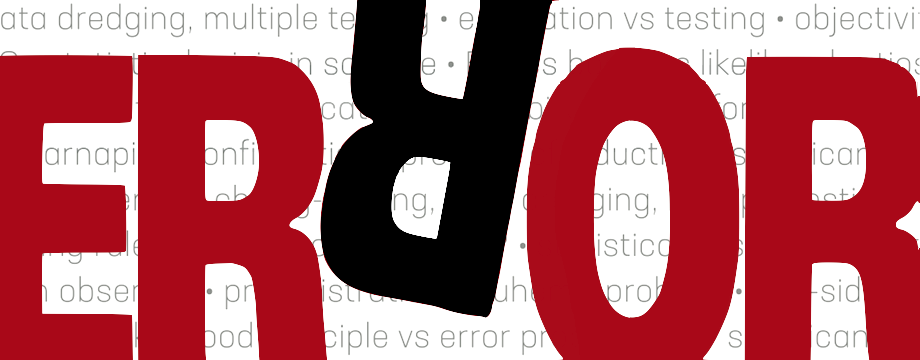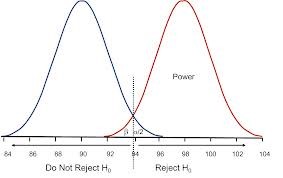New course for Spring 2014: Thursday 3:30-6:15
 Phil 6334: Philosophy of Statistical Inference and Modeling
Phil 6334: Philosophy of Statistical Inference and Modeling
D. Mayo and A. Spanos
Contact: error@vt.edu
This new course, to be jointly taught by Professors D. Mayo (Philosophy) and A. Spanos (Economics) will provide an introductory, in-depth introduction to graduate level research in philosophy of inductive-statistical inference and probabilistic methods of evidence (a branch of formal epistemology). We explore philosophical problems of confirmation and induction, the philosophy and history of frequentist and Bayesian approaches, and key foundational controversies surrounding tools of statistical data analytics, modeling and hypothesis testing in the natural and social sciences, and in evidence-based policy.
A sample of questions we consider*:
- What makes an inquiry scientific? objective? When are we warranted in generalizing from data?
- What is the “traditional problem of induction”? Is it really insoluble? Does it matter in practice?
- What is the role of probability in uncertain inference? (to assign degrees of confirmation or belief? to characterize the reliability of test procedures?) 3P’s: Probabilism, performance and probativeness
- What is probability? Random variables? Estimates? What is the relevance of long-run error probabilities for inductive inference in science?
- What did Popper really say about severe testing, induction, falsification? Is it time for a new definition of pseudoscience?
- Confirmation and falsification: Carnap and Popper, paradoxes of confirmation; contemporary formal epistemology
- What is the current state of play in the “statistical wars” e.g., between frequentists, likelihoodists, and (subjective vs. “non-subjective”) Bayesians?
- How should one specify and interpret p-values, type I and II errors, confidence levels? Can one tell the truth (and avoid fallacies) with statistics? Do the “reformers” themselves need reform?
- Is it unscientific (ad hoc, degenerating) to use the same data both in constructing and testing hypotheses? When and why?
- Is it possible to test assumptions of statistical models without circularity?
- Is the new research on “replicability” well-founded, or an erroneous use of screening statistics for long-run performance?
- Should randomized studies be the “gold standard” for “evidence-based” science and policy?
- What’s the problem with big data: cherry-picking, data mining, multiple testing
- The many faces of Bayesian statistics: Can there be uninformative prior probabilities? (No) Principles of indifference over the years
- Statistical fraudbusting: psychology, economics, evidence-based policy
- Applied controversies (selected): Higgs experiments, climate modeling, social psychology, econometric modeling, development economic
Interested in attending? E.R.R.O.R.S.* can fund travel (presumably driving) and provide lodging for Thurs. night in a conference lodge in Blacksburg for a few people through (or part of) the semester. Topics will be posted over the next week, but if you might be interested, write ASAP for details (with a brief description of your interest and background) to error@vt.edu.
*This course will be a brand new version of related seminar we’ve led in the past, so we don’t have the syllabus set yet. We’re going to try something different this time. I’ll be updating in subsequent installments to the blog.
Dates: January 23, 30; February 6, 13, 20, 27; March 6, [March 8-16 break], 20, 27; April 3,10, 17, 24; May 1
D. Mayo (books):
How to Tell What’s True About Statistical Inference, (Cambridge, in progress).
Error and the Growth of Experimental Knowledge, Chicago: Chicago University Press, 1996. (Winner of 1998 Lakatos Prize).
Acceptable Evidence: Science and Values in Risk Management, co-edited with Rachelle Hollander, New York: Oxford University Press, 1994.
Aris Spanos (books):
Probability Theory and Statistical Inference, Cambridge, 1999.
Statistical Foundations of Econometric Modeling, Cambridge, 1986.
Joint (books): Error and Inference: Recent Exchanges on Experimental Reasoning, Reliability and the Objectivity and Rationality of Science, D. Mayo & A. Spanos (eds.), Cambridge: Cambridge University Press, 2010. [Intro, Background & Chapter 1. (The book includes both papers and exchanges between Mayo and A. Chalmers, A. Musgrave, P. Achinstein, J. Worrall, C. Glymour, A. Spanos, and joint papers with Mayo and Sir David Cox)].






If you set up web-streaming, you will have at least one viewer. Gelman did something similar with some seminars he gave recently — maybe he can tell you what’s necessary.
Make that 2 viewers! Also, any chance of seeing the course handouts/ppts? That would be awesome!
3
If there’s a lot of interest, we should be able to find a way. What method did Gelman use?
I’d be willing to do it if it wasn’t disruptive; we should look into it. Thanks for your interest.
Sounds great! Like Corey above, I’m interested in following along from a distance as much as possible.
Sounds great! Like Corey above, I’m also interested in following along from as distance as much as possible.
Oh man, this is a course I would so dearly love to take. Too bad you are holding it in another part of the world from me.
A long time lurker, Khan Academy fanatic and MOOC course-taker I too would like to attend (via the web).